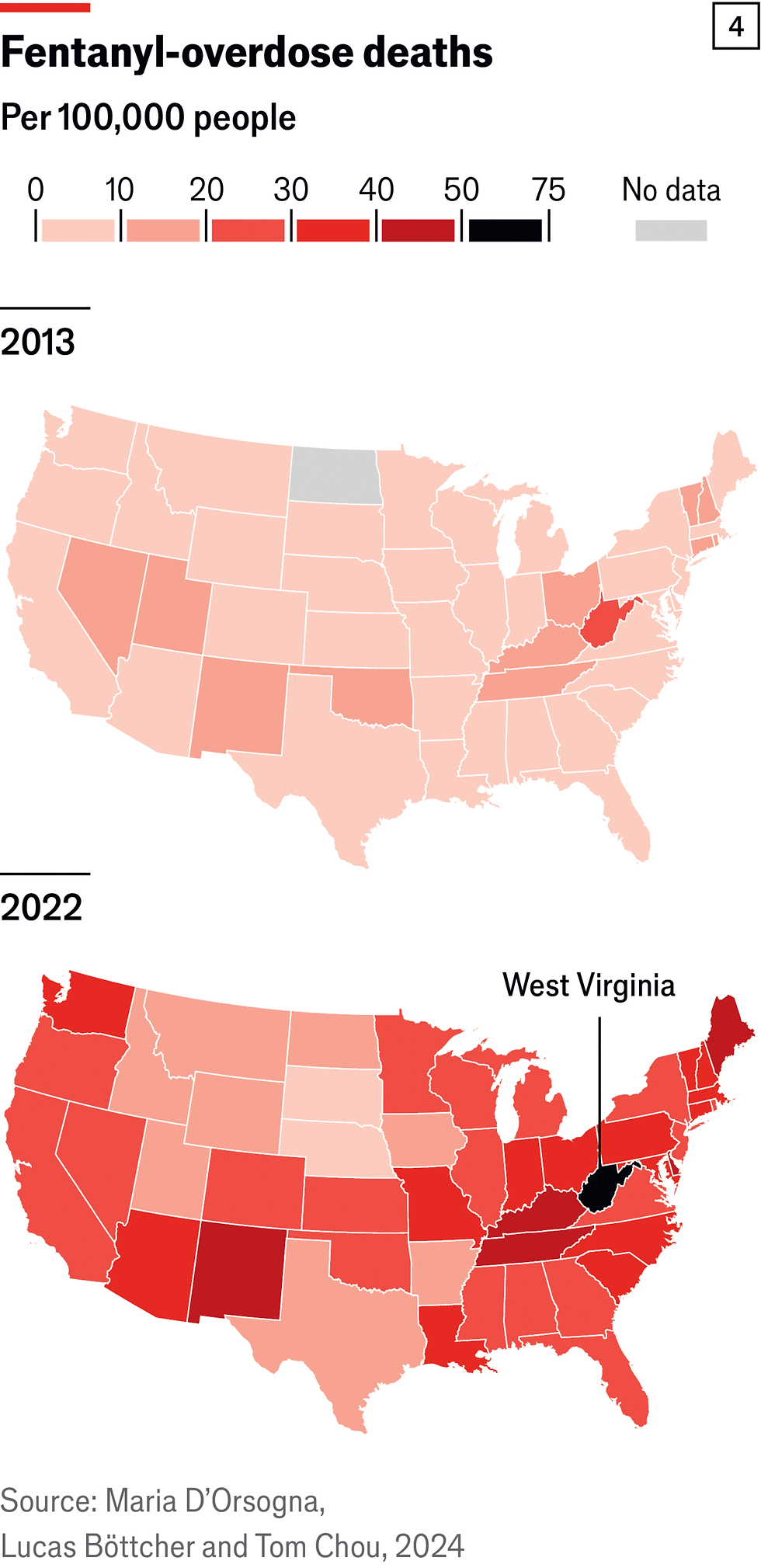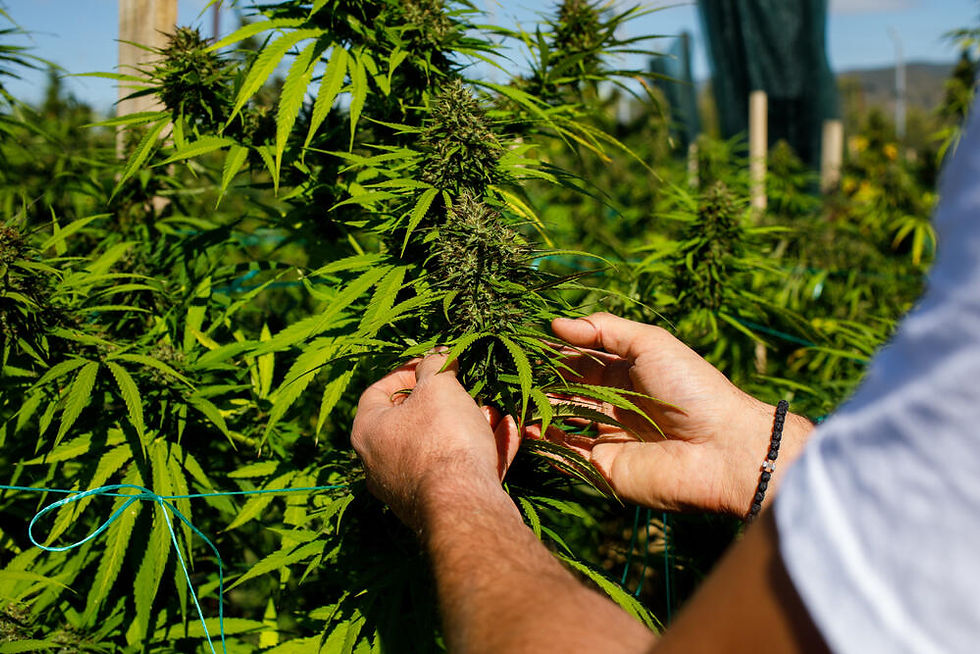Fentanyl in Weed? The Growing Crisis Not Enough People are Talking About
- Smoke Central Hemp

- Feb 6, 2025
- 4 min read
Updated: Feb 6, 2025
The black market cannabis industry has always been risky, but now it’s becoming deadly. While most people assume the worst they’ll get from illegal weed is some mold or weak potency, the reality is far more dangerous.
Fentanyl-laced cannabis is no longer a rumor—it’s a growing crisis. In the past few years, multiple states have reported fentanyl-laced marijuana overdoses, and the problem is only getting worse.
The Rise of Fentanyl-Laced Cannabis: By the Numbers

To understand how serious this issue is, look at the alarming data:
Fentanyl is now the leading cause of overdose deaths in the U.S., killing over 74,000 Americans in 2022 alone. Many of these deaths come from users unknowingly ingesting fentanyl in other drugs (CDC).
Over 40 states have reported cases of fentanyl-contaminated cannabis. States including Connecticut, Pennsylvania, and Vermont have issued public health warnings due to increasing cases of fentanyl-laced marijuana (DEA).
A single fentanyl-laced joint could be fatal. Even 2 milligrams of fentanyl (the equivalent of a few grains of salt) can cause a deadly overdose, especially for someone with no opioid tolerance (NIH).
One 2023 study found that Over 30% of black market cannabis products tested positive for contaminants, including fentanyl, mold, and synthetic additives (NCBI).
In 2021, Connecticut officials confirmed multiple cases of fentanyl-laced weed leading to opioid overdoses. Patients who thought they were just smoking cannabis ended up in emergency rooms needing Narcan (State of Connecticut).
How Is Fentanyl Getting Into Black Market Weed?
The presence of fentanyl in cannabis isn’t always intentional, but the result is the same—users are at risk of overdose with every hit. There are three main ways fentanyl ends up in illegal marijuana:
1. Cross-Contamination in Illegal Supply Chains
Illegal drug suppliers frequently handle multiple substances, including heroin, cocaine, meth, and fentanyl, in the same spaces. Because fentanyl is a fine powder that spreads easily, it can contaminate batches of weed unintentionally.
2. Intentional Lacing for Addiction & Profit
Some dealers intentionally lace weed with fentanyl to create repeat customers. By introducing users to opioids without their knowledge, dealers can trap them into dependence, leading to bigger profits and long-term addiction.
3. Lack of Oversight & Testing in the Black Market
Legal dispensaries must pass strict lab testing before selling cannabis. The black market, on the other hand, has zero quality control, meaning there’s no way to verify what’s inside.
How Many People Have Overdosed on Laced Weed?

Because overdose deaths are often attributed to opioids in general, exact numbers are hard to track. However, these documented cases highlight the growing danger:
In Connecticut alone, there were 40 confirmed fentanyl-laced cannabis overdoses in just one year (Connecticut Department of Public Health).
In New York, multiple ER patients tested positive for fentanyl after reporting they had only smoked cannabis. Officials warned the public that the black market was becoming increasingly dangerous.
DEA reports show that fentanyl is now being found in cannabis products across multiple states, particularly in areas where black market sales are high.
The Only Way to Avoid Laced Weed? Ditch the Black Market.
There is no way to tell if a batch of weed is contaminated with fentanyl just by looking at it. Unlike heroin or counterfeit pills, fentanyl-laced weed doesn’t have a distinct appearance, smell, or taste. Even experienced users wouldn’t be able to tell until it’s too late.
The only way to guarantee safety is to purchase cannabis from legal, lab-tested sources. THCA Is an amazing alternative to anyone in an "Illegal" state because it's federally legal and aloud in most states.
Why THCA Is the Safe and Legal Alternative
For those seeking a reliable, legal, and high-potency alternative to illegal cannabis, THCA flower is emerging as a game-changer. Unlike black market marijuana—where contamination with fentanyl, mold, pesticides, and other harmful substances is a growing concern—THCA is federally legal under the 2018 Farm Bill, and is required to have a third party lab tests done on every product to insure legality and purity.
Why THCA Flower Is the Best Alternative to Black Market Cannabis

Lab-Tested for Safety – Every batch undergoes comprehensive third-party testing for pesticides, heavy metals, microbial contamination, and residual solvents, eliminating the dangers of unregulated street cannabis.
Federally Legal in Most States – THCA is classified as hemp under the 2018 Farm Bill, making it widely available without the legal risks of illicit marijuana sales.
Converts to THC for Full Potency – When heated, THCA naturally decarboxylates into THC, delivering the same psychoactive effects as traditional cannabis without the risks associated with unregulated black market products.
Zero Risk of Fentanyl or Cross-Contamination – Unlike illegal cannabis, THCA is cultivated, processed, and tested in controlled environments, ensuring 100 percent purity with no unknown additives.
A Transparent, Consumer-Safe Choice – THCA providers offer lab certificates of analysis (COAs), so consumers always know exactly what they are getting.
Protect Your Health and Choose a Safer Cannabis Experience
With fentanyl contamination and quality concerns surging in the black market, purchasing from an unregulated source is no longer just a gamble—it is a serious health risk.
THCA flower provides a legal, verifiable, and potent alternative, ensuring consumers can enjoy the benefits of cannabis without uncertainty or danger.
Final Thoughts: Protect Yourself from the Hidden Dangers of Black Market Weed
The black market is no longer just an issue of bad quality or inflated prices—it’s a matter of life and death. With fentanyl contamination becoming more common, smoking the wrong joint could be fatal. There’s no saving money or convenience worth risking your life.
If you or someone you know still buys from unregulated sources, it’s time to make the switch. There are safer, legal options that give you the same benefits—without the terrifying risks.



